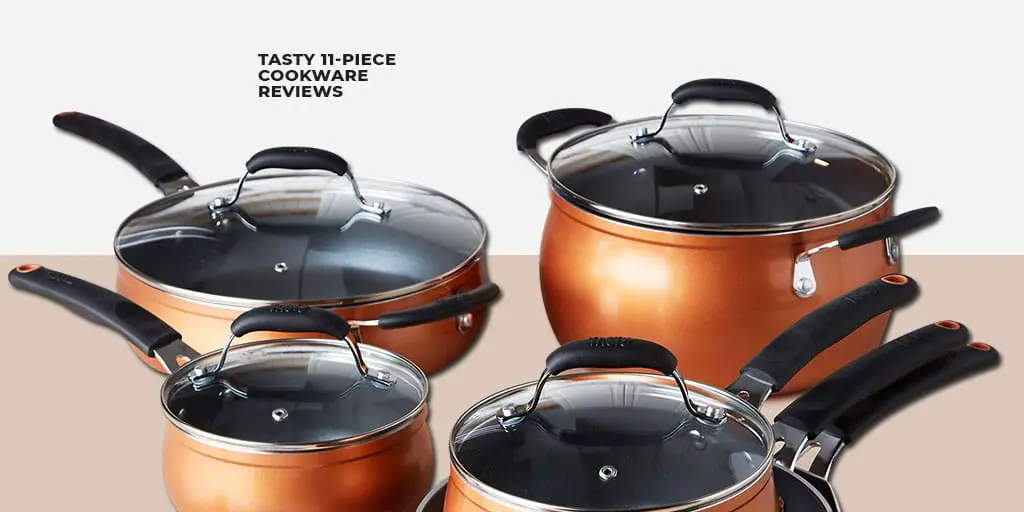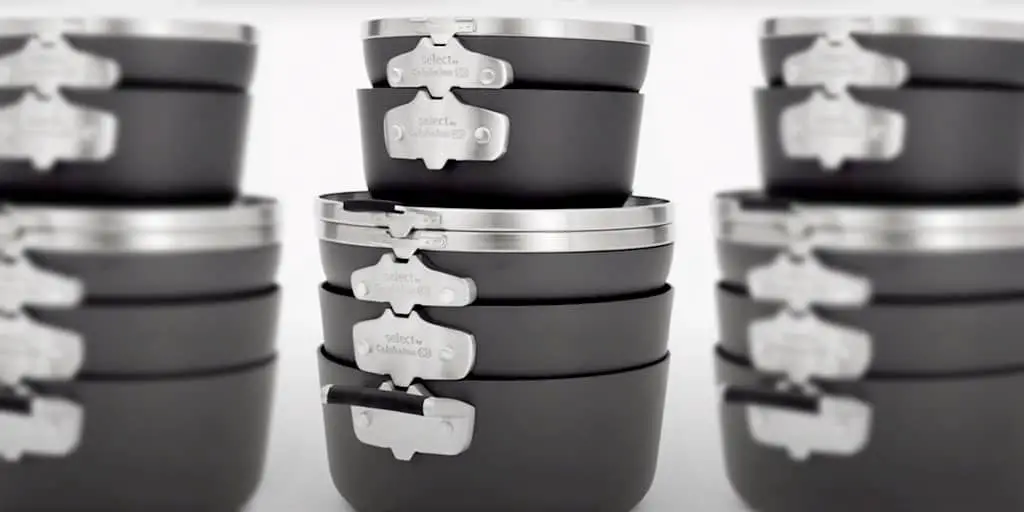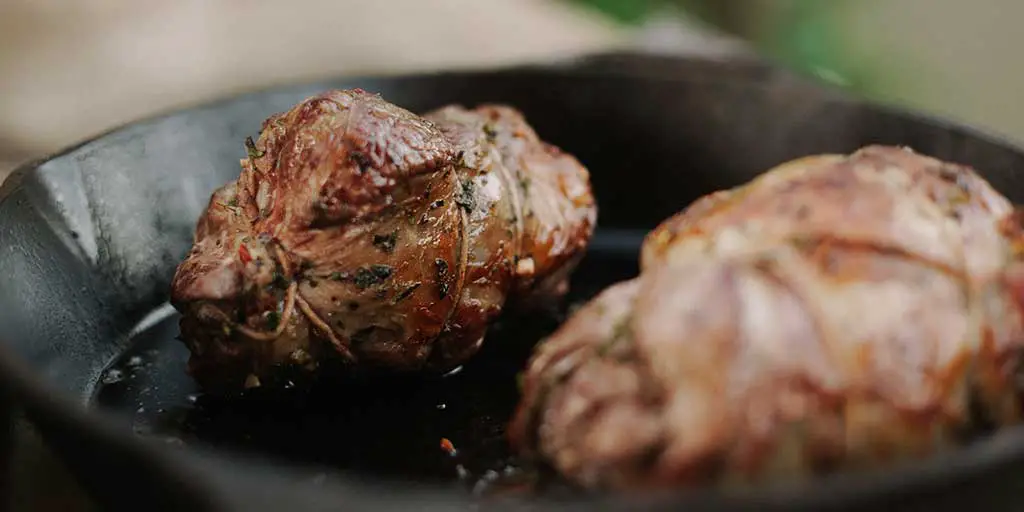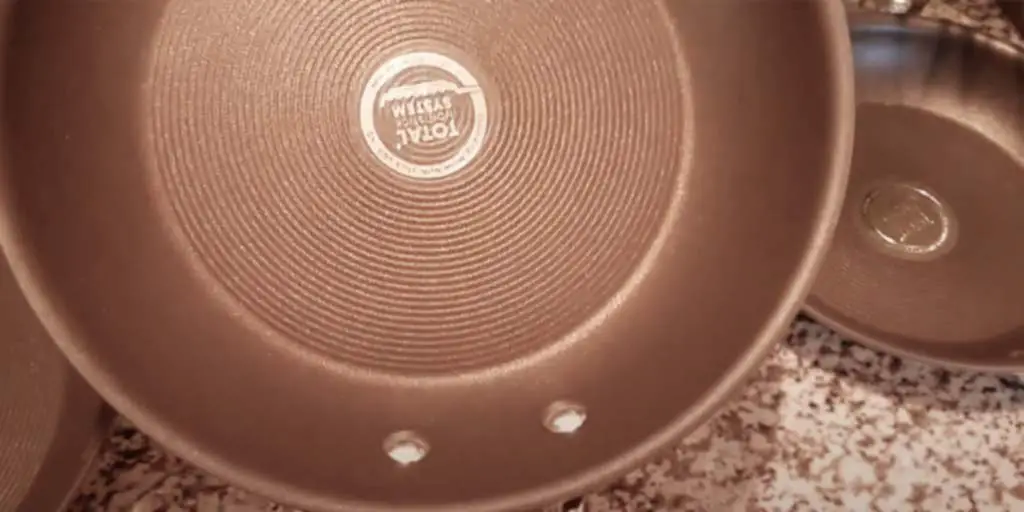Benefits And Drawbacks of Using Hard Anodized Cookware
You may have heard of this special kind of cooking utensil, which is an upgraded form of aluminum cookware, but you don’t know if it’s safe to use. Here’s where we come in and tell you what is hard anodized cookware.
In this article, we’re going to walk you through the pros and cons of hard-anodized aluminum cookware in detail. If you’re concerned about the health implications but curious nonetheless, you will not want to miss this.
Contents
What is Hard Anodized Cookware
Hard anodized cookware, a special kind of oxidized cookware, is considered to be the go-to option for ardent home-cooks, and professional chefs, especially with its new-found popularity.
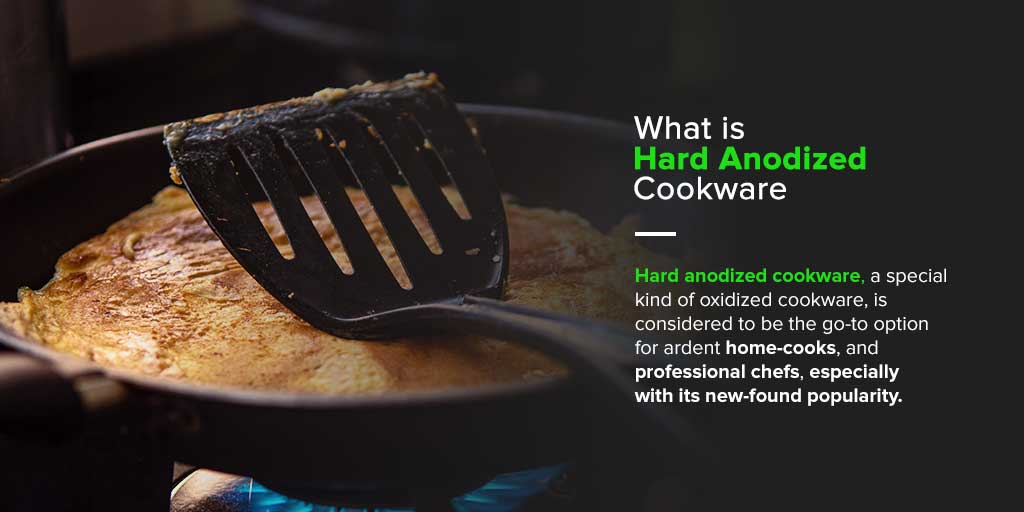
Contrary to the more commonly used cooking utensils- aluminum utensils- anodized aluminum is not soft, nor does it react with acidic food (like lemons) to produce toxic substances.
Aluminum, which is the third most abundant element, is anodized using an electrochemical process to prevent the metal from infiltrating into food.
This procedure requires soaking the aluminum into hot acid and then charging the metal electrically to oxidize the surface. Owing to this, anodized cookware has the edge over traditional stainless steel ones.
Benefits of Using Hard Anodized Cookware
Here are the reasons why you should use hard anodized cookware.
Hard and Durable
Anodizing requires dipping aluminum in hot acid, which solidifies the metal and makes its surface twice as hard.
The robustness of the material ensures durability, as the cookware is scratch-resistant; it won’t chip or corrode easily. The dark finished touch of hard-anodized aluminum gives the cookware a homey yet professional look.
Most importantly, its strong surface prevents any kind of chemical reaction from occurring between food and the hard aluminum cookware, defying acidic food like lemons and oranges.
Light
Although it is twice as hard as stainless steel, hard-anodized utensils possess the lightness of typical aluminum utensils, making it easy to handle pots and pans around the kitchen.
This feature provides the ease of use for home cooks and consistent use for professional chefs. These pots and pans have the perfect combination to prepare any food, provided that they are maintained properly.
Non-Toxic
The electrochemical anodizing process produces a non-stick coating on the surface of the cookware, locking in the aluminum inside and preventing it from leaching out when cooking acidic food.
As opposed to other metallic utensils, these are non-reactive due to the sheer number of layers. As long as the cookware is in mint condition, it is non-toxic.
However, it requires high maintenance as any kind of chipping or peeling of the material could potentially cause a toxic reaction.
Excellent Conductors of Heat
Since this particular type of cookware is hardened by dipping aluminum into an acidic solution, it is a great conductor of heat. Not just heat conductivity, the aluminum core beneath the layers of anodized surface provides an even heat distribution.
Although its ability to conduct heat is inferior to pure aluminum, it is sufficient for both home and professional cooking.
Safe to Use
Hard anodized cookware is compatible with the commonly used stoves, like gas and electric gas stoves, as they don’t need the use of magnetic referral. The robust surface above its thick aluminum core makes it the perfect cookware for electric glass stoves.
Undamaged hard anodized cookware is safe, as long as its surface doesn’t have any kind of chipping or peeling.
For the most part, anodized aluminum does not contaminate food. However, there are some drawbacks that come along with the electrochemical process.
Drawbacks of Using Hard Anodized Cookware
Here are the disadvantages you need to know about.
More Expensive
This kind of cookware is much more expensive compared to the traditional utensils. But its non-toxic characteristic, as opposed to reactive elements in conventional utensils, makes it worth the price.
High-Heat Intolerant
Due to its excellent heat conductivity feature, this specific material of cooking utensils absorbs heat very quickly. And this feature allows the cookware to work best in medium to medium-high temperature, especially when cooking for a long period.
Excessive heat should be avoided for pre-heating and during cooking in order to prevent the hardened aluminum from corroding.
Not Dishwasher-Safe
While hard anodized cookware is robust and has many striking perks, it still requires high maintenance, especially when it comes to cleaning. Most hard anodized and non-stick products are not dishwasher friendly.
Although a few, like Circulon Symmetry and Calphalon Unison, claim to be dishwasher-safe, it is better to hand wash all anodized hand utensils to ensure longevity. Experts tend to believe that while the dishwasher won’t destroy any hard anodized cookware, it does risk accelerating wear and tear.
It might cause impairing, or erosion to the surface of the utensil, which could cause raw aluminum to leach into acidic food, and any reaction could generate toxic substances. Besides, detergents for dishwashers could discolor the anodized body.
Hence, it is best to gently hand wash this particular cookware by soaking and rubbing the surface with soft scrubs and mild soap. This is the best way to ensure a long and effective life of such utensils.
Not Cooking Spray Friendly
As these are not actual dishwasher safe cookware the stickiness of the pans and pots is hard to get rid of. Cooking sprays contain water and chemical propellants, which evaporate inducing a slimy remnant when heated. Utensils, in this condition, are hard to clean by hand washing.
Instead of cooking spray, slight butter or oil can be brushed on the inner surface of anodized pans, which work just as good.
Not Induction-Safe
Hard anodized utensils are compatible with the widely used cooktops, like gas and electric glass stoves. However, the cookware for gas stoves can not be used on induction stoves, as these need a magnetic referral at the base.
Conclusion
Weighing the pros against the cons, it is safe to say that hard-anodized aluminum cookware is worth the upgrade, as acidic food prepared in such substances does not interact with the cookware or produce toxic substances.
However, this special kind of material demands high maintenance as excessive heat or any kind of corrosion on its surface might prove to be detrimental.
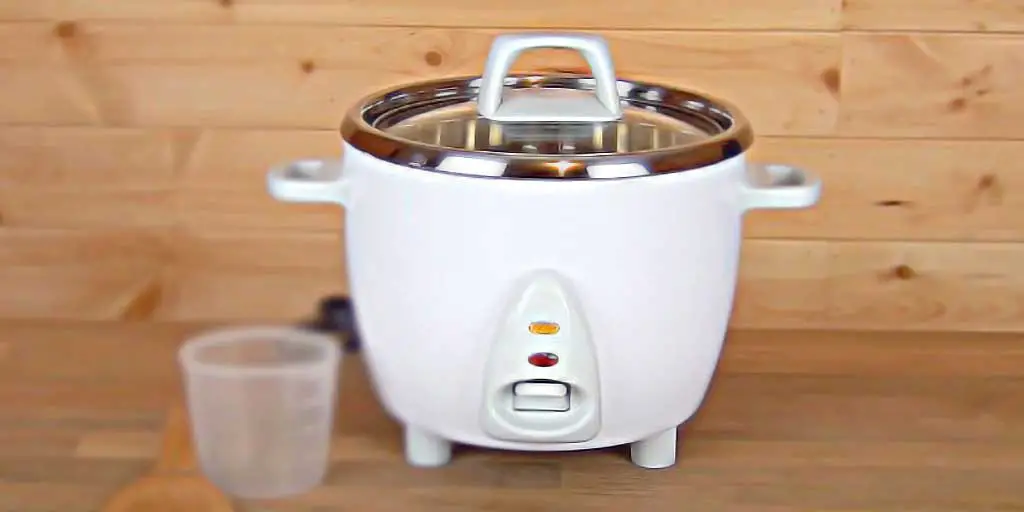
![Best Pots and Pans For Electric Stove [How to Choose] 2022](https://verybestkitchen.com/wp-content/uploads/2020/01/Best-Cookware-For-Glass-Top-Stoves.jpg)
